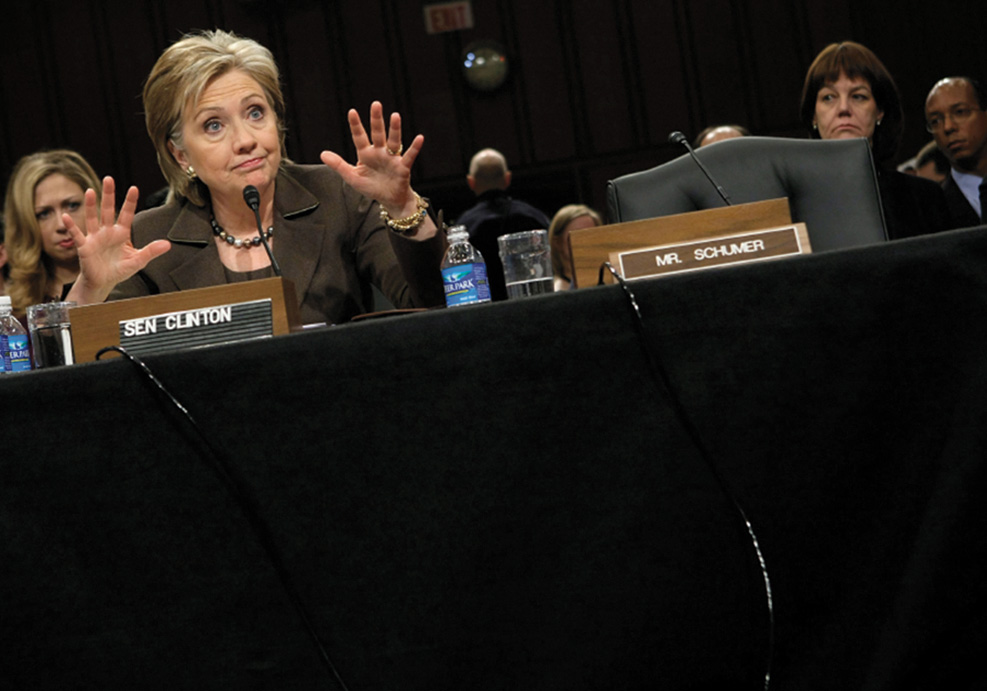Just before her tenure ended as secretary of state, Hillary Rodham Clinton fainted in her home and suffered a concussion. Unlike in 2009, when she fractured her elbow and returned to work days later, Clinton remained in the hospital for weeks. Her slow recovery prompted media to wonder about her work life.
Hailed as the most widely traveled secretary of state, Clinton represents for many people the strength of female ambition. After her release from the hospital, The New York Times crooned over her "herculean work habits" and "indomitable stamina and work ethic." In spite of the adverse effects that her grueling schedule was imposing on her health, and the consensus among her advisers that she needed rest, Clinton nevertheless enjoyed "enduring status as a role model."
Such effusive praise for workaholism? It should have shocked me less. In a meritocracy such as the modern West, the biggest piece of the pie is supposedly reserved for the hardest working. Erin Callan, the former CFO of Lehman Brothers, credited her professional success to her indefatigable work ethic. Only after her divorce and resignation in 2008 could she admit the underbelly of that ethic. In a recent New York Times piece, "Is There Life After Work?" she wrote, "[W]hen I left my job, it devastated me. . . . I did not know how to value who I was versus what I did. What I did was who I was."
Despite the potential catastrophes of overwork, many of today's professional women are tempted to it. Is this because we're grossly underrepresented in high-level positions in the public and private sectors? Because we are still earning less than our male counterparts? Because successful women like Sheryl Sandberg, COO of Facebook, keep telling us to mind the "ambition gap"? Or, do we overwork simply because it's so easy to do, given that our office follows us around via a laptop and cell phone?
Hard work, overwork even, seems to pave the road to achievement. But if Clinton's and Callan's cases prove that consuming work habits jeopardize the health of our bodies and our relationships, might we not be driving a Faustian bargain of success? Furthermore, isn't there more we stand to lose when we allow work to bleed into the margins of rest and recovery?
The Scriptures open at the act of creation: it's a divine work week. Six days God labors, but on the seventh day, he rests. He blesses the seventh day as a holy day, a day "set apart" from sweat and commerce, labor and trade, and commends to Israel his pattern of work and rest: "Remember the Sabbath day, to keep it holy" (Ex. 20:8, ESV). But the Israelites were notoriously delinquent at their practice of Sabbath. It seems that they, like us, were unnerved by the divine command to depend.
Sabbath, as the practice of regularly retreating from our rituals of work, teaches us that in our absence, the world still spins on its axis. Apparently the sun remembers to rise and set without our reminding it to check its day planner. Sabbath is a similar kind of celestial event. Like the North Star, it rises every week from the horizon of work to teach us what is most fundamental to nature's law: The Creator, not the creature, sustains the breath and being of the universe.
Isn't it true that much of our overwork and resistance to Sabbath is driven by nagging fear? Aren't we worried that stopping, even for a day a week or a week of the year, ensures we'll be left behind by our 24/7 colleagues? Doesn't rest risk our opportunities for future advancement, even imperil our financial security?
Sabbath bids us to live beyond these fears.
And Sabbath has always been a transaction of trust. When we pause, we create necessary and holy distance from the petulant idea that we are ultimately in charge of anything. When we rest, we remember our limited role as creatures. Sabbath is the habit of humility we can wear every week, forcing us to relinquish illusions of our indispensability. In humble worship, and rest, we finally learn to remember that we are productive only as God establishes the work of our hands (Ps. 90:17).
How beautifully ironic, then, that on the Sabbath of darkness between Jesus' crucifixion and resurrection—on the occasion of human inactivity—God prepared to inaugurate the New Creation. Like all lessons of Sabbath, this event reminds us that God's kingdom advances by dint of his herculean work—never ours, male or female.
Best of all, the enduring honor will be his.
Jen Pollock Michel, based in Toronto, writes regularly for Her.meneutics. She is writing a book for InterVarsity Press about desire.










